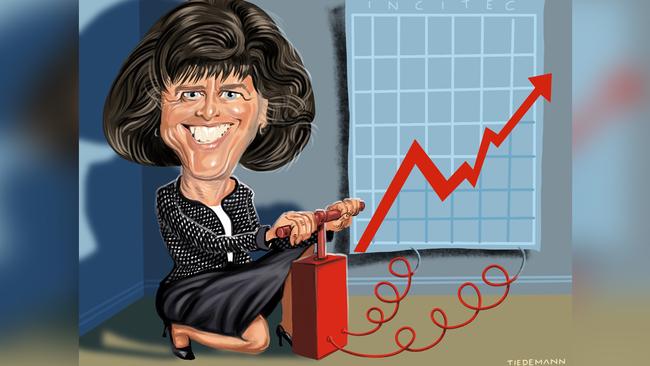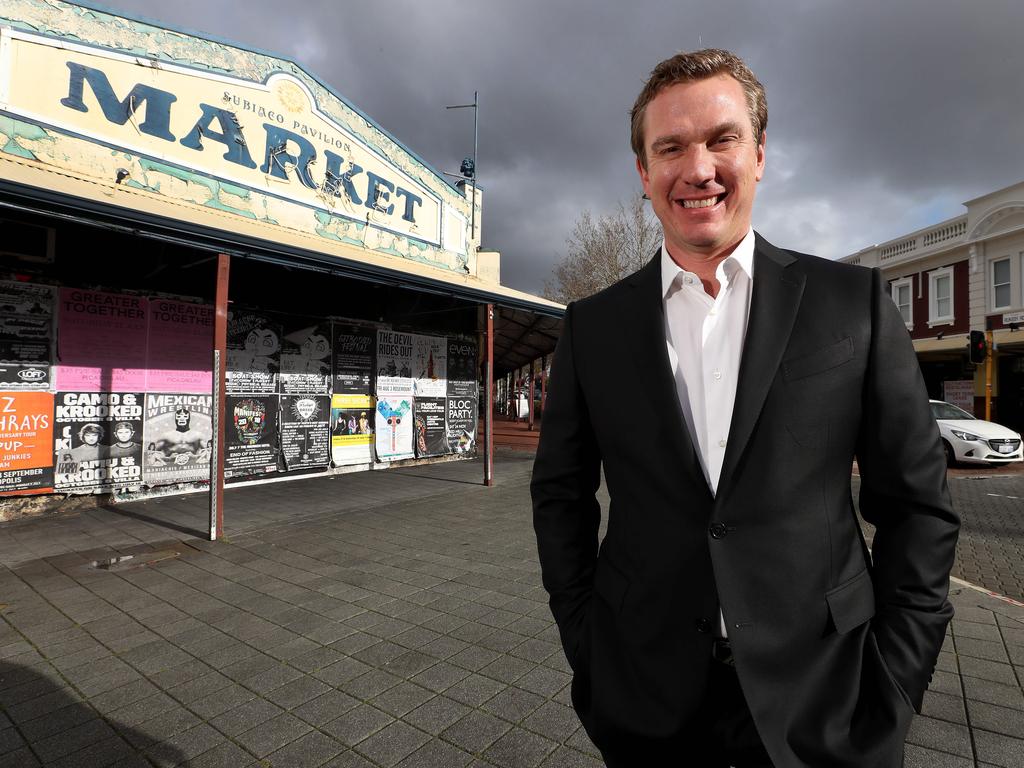
Coca-Cola Amatil chief Alison Watkins is the chair of the economic recovery group, comprised of 14 different working groups, looking “first to get quick wins in safely getting the economy to work again, and then actionable plans to sustain the economy in the longer term”.
“Business needs to partner (with) the ACTU in a collaborative process to make industrial relations work more flexibly,” she added.
Domestic tourism accounted for 80 per cent of the travel industry, Watkins said, stressing the need to get skifields open, and Sydney Airport’s Geoff Culbert said: “80 per cent of the freight leaving this country goes in the belly of a commercial aircraft.”
Culbert, who heads the tourism, transport freight and logistics taskforce, stressed the importance of the visitor economy.
“Overseas visitors spend $50bn a year in Australia,” he said. Australian Unity’s Rohan Mead, who is heading the health taskforce, said the crisis had fast-forwarded a series of reforms that had been spoken about for some years.
He cited telehealth and alternative delivery systems as two of these, so a patient doesn’t need to visit the GP to get a repeat prescription and these can be electronically sent to the chemists.
Telstra’s Andy Penn, who heads the digital taskforce, noted one of the impediments to telehealth was the fact Medicare claims could not be made for service over the phone.
This was changed and the system took off.
Cybersecurity was even more important with the explosion of VPN connections from the office to the home, he added.
Penn also stressed the need to consider digital inclusion because as the government and others move to the digital field those without access to the internet were even more disadvantaged.
“Then there are micro-credentials — so a dental nurse who may be out of work because the dentist is closed can do a short course to gain the skills necessary to do other forms of nursing which are in short supply,” Mead noted.
The reform needed is a boost in funds for VET colleges to provide more short-form courses to help boost employment skills.
Wesfarmers’ Rob Scott heads the tax and federation taskforce, and said: “There is a real opportunity across both federal and state taxes to stimulate investment and employment.”
It’s not just a grab for lower corporate taxes but a push to boost the economy.
Former Bendigo and Adelaide Bank chair Rob Johanson, who heads the corporate governance group, is looking among other areas at insolvent trading, where the government provided relief for directors.
But this lasts for just six months and the issue is what comes next.
“Class actions are another area of concern, particularly as they relate to continuous disclosure rules,” he said.
The Australian insolvency regime is based around creditor-led action with a requirement that directors don’t let a company trade while insolvent.
The US Chapter 11 rules are debtor-led so a company can file for bankruptcy to help keep creditors at bay.
Johanson favours that system.
“People complain about the lack of an entrepreneurial culture in Australia,” he said, and these were impediments, he added. The focus of the BCA working groups is to help get the economy safely reopened, accelerate the recovery and establish sustained economic growth and higher wages.
The way everyone is talking, and with the national cabinet process apparently achieving results, you could believe Australia is set to actually achieve a policy revolution.
The crisis has led to a combination of government and regulator-led collaboration between warring factions like the NBN and the big telco retailers to achieve needed capacity increases free of charge (for the moment). However, Watkins cautioned: “In the near-term everyone is working together and believes in the process but it is unrealistic to expect it will go beyond a few weeks.
“It is important to have debate and we need contestability of ideas,” she added.
Unnecessary delay
The federal government has moved with commendable speed to minimise the impact of some laws to ensure professionals can work through the impacts of COVID-19, but sometimes they have gone too far.
Exhibit A was last week’s decision by Treasurer Josh Frydenberg to delay banking royal commission reform relating to mortgage brokers.
The brokers did an extraordinary job lobbying again for change by arguing about increased complexity and systems, which made the government think the switch to mandating acting in the best interests of clients was revolutionary.
Maybe it’s is more complicated than it sounds, but is it really that much?
ASIC followed through and said brokers’ legal obligation to act in a client’s best interests would be delayed by six months to January next year.
Why?
Fair share
Incitec Pivot boss Jeanne Johns had everything that could go wrong hit her in the first half last year, with floods, the drought and high gas prices, so the 22 per cent increase in net profit to $65m was in part a reversal of last year’s doom.
If the company seems to be back on track and bridging the gap with Orica on explosives technology, then the $675m pre-emptive equity raising had some talking.
The issue expands shares on issue by around 20 per cent, which is sizeable.
So maybe the outlook is worse than imagined, or as Johns said, maybe the company was just being prudent.
Gearing has increased above the target range at 2.8 times and after the raising is now firmly inside at 1.9 times earnings before interest, tax, depreciation and amortisation of $338m.
The underwriters were JPMorgan, Merrill Lynch and Macquarie (continuing its run of being involved in over a third of all issues).
The issue, at an 8.7 per cent discount to market, was no doubt already allocated, but the underwriters always add a little note inviting private client brokers to participate in the issue along with the big brokers’ clients.
No amount is set aside for the retail brokers, and no surprises for guessing that on popular issues they miss out.
The invitations are presumably issued to satisfy concerns that with issues like this, which increase shares on issue by 20 per cent with retail holders limited to $75m in stock, dilution is all but guaranteed.
Cochlear at least increased the purchasing plan to let its small holders get a chance to avoid dilution.
Maybe the big brokers could allocate a portion for retail brokers or just drop the pretence and leave retail holders further diluted.








The BCA is aiming to help the government on how to get the fastest economic recovery, with the emphasis on business working better with stakeholders and pinpointing potential roadblocks.